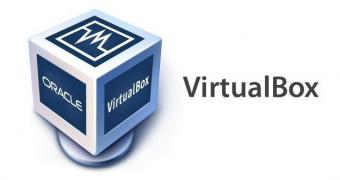Oracle announced a few moments ago the release of the VirtualBox 5.2.10 maintenance update for their open-source and cross-platform virtualization solution for Linux, Windows, and macOS operating systems.
VirtualBox 5.2.10 is here one and a half months after version 5.2.8 to fix all the critical security vulnerabilities related to Oracle VM VirtualBox, as well as various reported bugs. Among these, we can mention a hang that occurred when starting the KDE Plasma desktop environment on various GNU/Linux distributions.
The update also addresses a regression from VirtualBox 5.2.0 that allowed the presence of multiple NVMe controllers with ICH9 enabled, fixes an interrupt storm issue in FreeBSD guests with HDA audio enabled, and adds support for handling the 0.0.0.0 nameserver as a valid NAT setting.
"Oracle VM VirtualBox 5.2.10 addresses all the CPU (Critical Patch Updates) Advisory for April 2018 related to Oracle VM VirtualBox," said Simon Coter, Director of Product Management at Oracle. "This release includes improvements and regression fixes for Oracle VM VirtualBox 5.2."
VirtualBox 5.2.10 fixes a wireless detection regression
Among other changes implemented in the VirtualBox 5.2.10 release, we can mention a fix for a wireless detection regression that occurred when attempting to bridge to network adapters with unbound IP protocols, and a fix for VERR_INTNET_FLT_IF_NOT_FOUND when bridging to various network adapters on Windows hosts.
Other than that, the INT 15h/87h BIOS service now disables the A20 gate when it's done, a missing NULL pointer check was added in the Virtual Machine Manager (VMM) MMIO code, and the "Ignore" action was removed from the Windows installer when the current VirtualBox installation is still running.
VirtualBox 5.2.10 also introduced a small keyboard delay to fix an old software issue where some programs expect to read an incoming scan code several times. You can download VirtualBox 5.2.10 for GNU/Linux and macOS operating systems right now through our web portal, and check out the official website in the next few hours for the Windows package.

 14 DAY TRIAL //
14 DAY TRIAL //